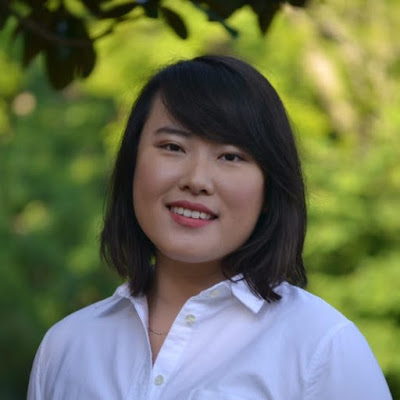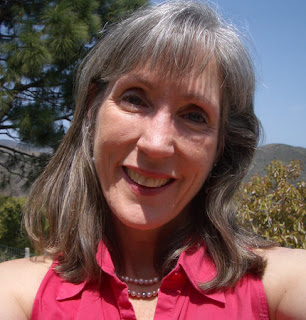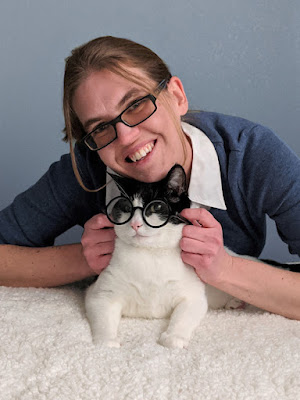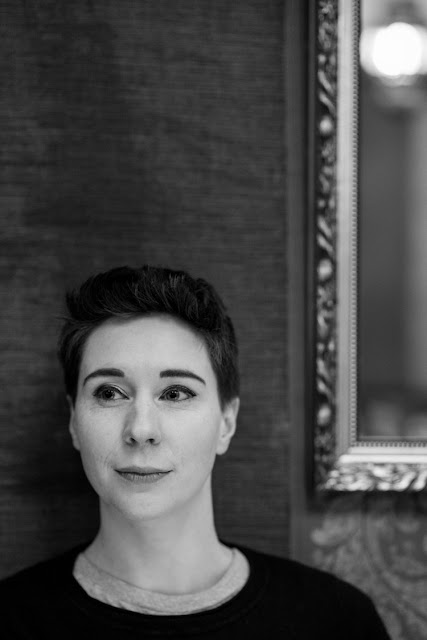Sarah Lyu
Sarah Lyu grew up outside of Atlanta, Georgia, and graduated from the University of Pennsylvania. She loves a good hike and can often be found with a paintbrush in one hand and a cup of milky tea in the other. Lyu is the author of The Best Lies and I Will Find You Again.

My Q&A with the author:
How much work does your title do to take readers into the story?Visit Sarah Lyu's website.
I have this habit where I come up with a title, pitch it to my editor, and then almost immediately hate it. We spent a few months going back and forth before landing on I Will Find You Again. It’s a bit long, but I love it—there’s a sense of loss and grief but also determination and hope. It encapsulates what the story is ultimately about: an intense love story and the aftermath of a deep, cutting loss.
What's in a name?
Chase Ohara, the main character and narrator of I Will Find You Again, has a name that’s a little on the nose. She’s always in pursuit, always hunting achievements like she’s starving. For her, it’s never enough. Reach a summit and she’s already plotting her next ascent. It’s also part of the novel that her father named both her and her sister traditionally male names (her sister is named Aidan, but chooses to go by Dani) as a not-so-subtle and misguided way of “encouraging” them to do anything, be anything, as if male names could shield them from any sexism or misogyny in their future. Her last name is Japanese and a nod toward No-No Boy by John Okada. There’s a memorable scene in that book where a character with the same last name is turned away from a hotel in the era after WWII because he’s Japanese, despite having called and made a reservation. They’d mistaken “Ohara” for the Irish “O’Hara” on the phone. So close, yet so far away. It’s a great metaphor for Chase’s experience. She was born in the US, like both of her parents, but there’s still this barrier, however slight, that separates her from her White classmates.
How surprised would your teenage reader self be by your new novel?
Shocked, probably. I wrote this novel in part for my teenage self, and it’s the book I needed back then. Like Chase, I was obsessed with achievements and the veneer of success—too deep in to see how it was destroying my sanity, poisoning my soul. When I was younger, I was a more impatient writer, always in a rush to gather enough material for a story, but now that I’m older, I realize that some things just take time. I wouldn’t have been able to write this book until now, until I had enough time to grow and enough distance to both understand and empathize with my teenage self.
Do you find it harder to write beginnings or endings? Which do you change more?
Endings are hard. Usually, I know what happens before I start a story, but once I get to that point, it can be a little excruciating to write it out. There’re a lot of emotions: it’s often the most intense part of the novel, and it’s the end of the draft, when I’m exhausted and excited, nervous and hopeful. For I Will Find You Again, I didn’t change the beginning or ending much. With each draft, I added more and tried to layer in complexity while keeping the plot and emotional arc largely intact. But the very last scene did change pretty late into the process and came from a casual comment from my editor. Chase is a runner, and the story opens with her running in the dark, alone. She’s anxious, depressed, suicidal. When we leave her, she on another solo run, but this time, she’s not running from anything, not running toward anything. There’s a sense of space and freedom and hope. It was a perfect moment of symmetry—I love endings that echo back to the beginning.
Do you see much of yourself in your characters? Do they have any connection to your personality, or are they a world apart?
The way I create characters is to take a part of me and give it to them. It’s my “in” with them. They might like totally different things, might have goals that are foreign to me, but if I understand a particular piece of what makes them tick, then I can build everything else around it. I need to have that strong sense of empathy for a character, even if I vehemently disagree with them, in order to create someone believable. In many ways it was easy to write Chase and Lia because the pieces I gave them are part of a push-and-pull within myself: the perennial debate of pursuing the idea of success vs. giving up the rat race to find joy inthe moment. But for Chase’s father, who can be seen as a kind of villain in the story, I had to dig deeper. Why does he push her so hard? Why does he push himself so hard? It was important to me that he didn’t seem like a caricature of a mean, demanding parent. For him, my “in” was his all- encompassing fear of genuine starvation. His scarcity mindset came from a hungry childhood, and even though he knows logically he’s made enough money to attain financial security, he’s still that scared little boy at his core. It’s hard to empathize with a terrible parent, but it’s easy to empathize with a scared and hungry child.
What non-literary inspirations have influenced your writing?
Eternal Sunshine of the Spotless Mind was a big influence. Chase and Lia live in Long Island, and they venture out to Montauk as often as they can. “Meet me in Montauk,” a refrain from the movie, is something they text each other as a Bat-signal to escape their daily, high-achiever grind. I was also inspired by Justin Lin’s Better Luck Tomorrow, a crime film about Asian- American teens who start a cheating ring that takes a dark turn. Aside from movies, I’m really inspired by the everyday politics of being Asian-American. The model minority myth, the perpetual foreigner, Asian adoption by White parents—these are subjects I explore in the book. It was also important to me to tell stories that aren’t just centered on the immigrant experience; those stories are crucial but can in some ways re-enforce the idea that Asian- Americans are perpetual foreigners. My goal was to widen the types of stories Asian-Americans are seen in. I wanted to write characters who aren’t necessarily clashing culturally with their parents but whose experience are still completely informed by their Asian-American identity.
--Marshal Zeringue










